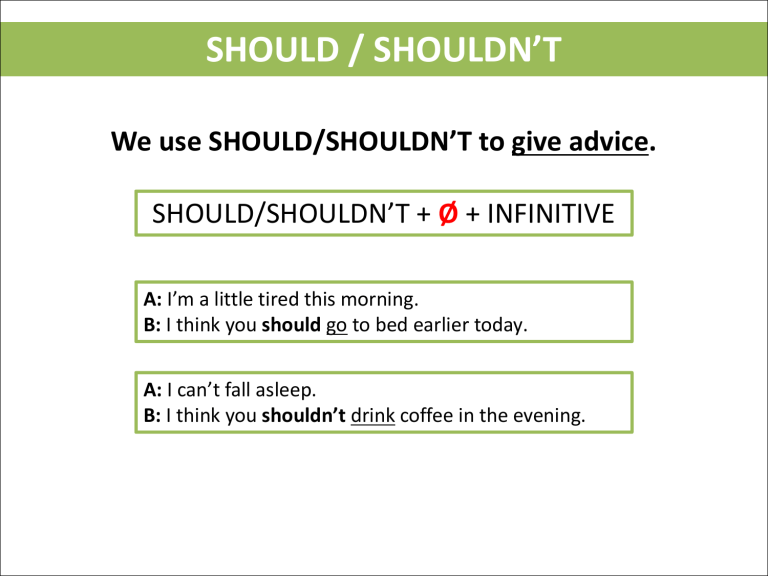
SHOULD / SHOULDN’T We use SHOULD/SHOULDN’T to give advice. SHOULD/SHOULDN’T + Ø + INFINITIVE A: I’m a little tired this morning. B: I think you should go to bed earlier today. A: I can’t fall asleep. B: I think you shouldn’t drink coffee in the evening. MUST / MUSTN’T We use MUST to talk about personal obligations. We use MUSTN’T to talk about prohibitions. MUST/MUSTN’T + Ø + INFINITIVE A: Do you want to go to the cinema later? B: I’m sorry. My exams are next week and I must study. A: Excuse me, sir. You mustn’t smoke here. It’s a hospital. B: Sorry. I will go outside. HAVE TO We use HAVE TO talk about obligations or rules. HAVE + TO + INFINITIVE • You have to be 18 years old to vote in Spain. A: Sorry, darling. You can’t wear your favourite dress to school. B: But I want to wear it, mum! A: You have to wear your school uniform today. DON’T HAVE TO We use DON’T HAVE TO talk about absence of obligation. (= it’s not necessary to do something) DON’T HAVE + TO + INFINITIVE A: Listen, about your party next Saturday. I have a lot of homework... B: Don’t worry. You don’t have to come if you don’t want to. A: How much are the tickets to see the museum? B: Nothing! You don’t have to pay to see the museum on Sunday.